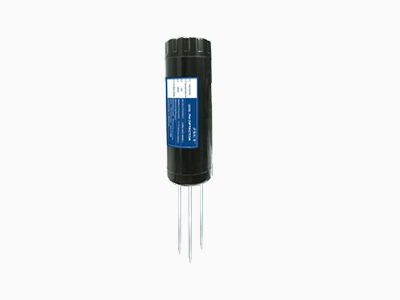Sustainable agriculture is the key to ensuring food security, preserving natural resources, and mitigating the environmental impact of farming practices. To achieve this goal, farmers and agricultural experts are constantly seeking innovative solutions that optimize crop management while minimizing input waste. One such breakthrough technology is the use of soil sensors, which revolutionize how farmers monitor and manage soil conditions. In this article, we will explore the importance of soil sensors in empowering sustainable agriculture and discuss their potential benefits and applications.

Understanding Soil Health:
Soil health is crucial for successful and sustainable crop production. It involves factors such as nutrient availability, soil moisture content, pH levels, and organic matter content. Traditionally, farmers relied on visual observations and manual soil sampling techniques to assess soil conditions. However, these methods were time-consuming, costly, and provided limited information. Soil sensors provide an efficient and accurate alternative by continuously monitoring critical soil parameters, allowing farmers to make data-driven decisions.
How Soil Sensors Work:
Soil sensors are devices that measure various soil parameters at different depths, providing real-time data on soil conditions. These sensors are typically equipped with probes or electrodes that are inserted into the ground to collect information. They can measure parameters such as soil moisture, electrical conductivity, temperature, and even nutrient levels. The sensors transmit the collected data wirelessly to a central system or a farmer’s mobile device, providing instant access to crucial information about the soil’s health and status.
Optimizing Irrigation Practices:
Water management is a significant challenge in agriculture, with water scarcity being a growing concern globally. Overwatering not only wastes this valuable resource but also leaches nutrients from the soil, leading to pollution. Underwatering, on the other hand, can result in crop stress and reduced yields. Soil sensors help farmers optimize their irrigation practices by providing real-time data on soil moisture levels. By accurately measuring the water content in the soil, farmers can determine when and how much water to apply, reducing water waste and ensuring optimal crop growth.
Precision Nutrient Management:
Proper nutrient management is vital for plant growth and maximizing yields. Soil sensors play a critical role in optimizing nutrient application by monitoring various soil parameters related to nutrient availability. For instance, some sensors can measure the electrical conductivity of the soil, which indicates the concentration of dissolved ions, including essential nutrients. By analyzing this data, farmers can determine the appropriate fertilizer application rates and timings, minimizing nutrient runoff and improving nutrient use efficiency.
Detecting Soil Compaction and Erosion:
Soil compaction and erosion are significant threats to soil health and productivity. Traditional methods of assessing soil compaction involved visual observation and manual inspection. However, soil sensors provide a more accurate and efficient means of detecting compaction. These sensors can measure the resistance or density of the soil, allowing farmers to identify areas prone to compaction and take necessary remedial measures. Additionally, sensors that monitor soil erosion can help farmers identify erosion-prone areas and implement erosion control strategies, such as contour plowing or cover cropping.
Managing Soil pH and Organic Matter:
Soil pH and organic matter content are crucial indicators of soil health. Imbalanced pH levels can affect nutrient availability and microbial activity, leading to decreased crop productivity. Soil sensors can measure pH levels, allowing farmers to make informed decisions about lime or other soil amendments. Similarly, sensors can also indicate organic matter content, which affects soil structure, water-holding capacity, and nutrient retention. By monitoring these parameters, farmers can implement practices that improve soil fertility and overall crop health.

Data-Driven Decision Making:
One of the significant advantages of soil sensors is their ability to provide real-time data for informed decision-making. The continuous monitoring of soil conditions allows farmers to detect potential issues, such as water stress or nutrient deficiencies, before they become severe problems. By having access to accurate and timely information, farmers can adjust irrigation, nutrient application, and other management practices promptly, optimizing crop growth, reducing input waste, and increasing overall productivity.
Future Potential and Challenges:
Soil sensor technology continues to evolve and holds significant potential for sustainable agriculture. Advancements in sensor design and data analysis techniques will further improve accuracy and usabil
